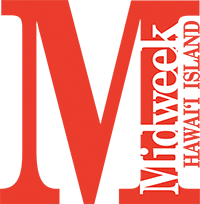A Sweet Partnership
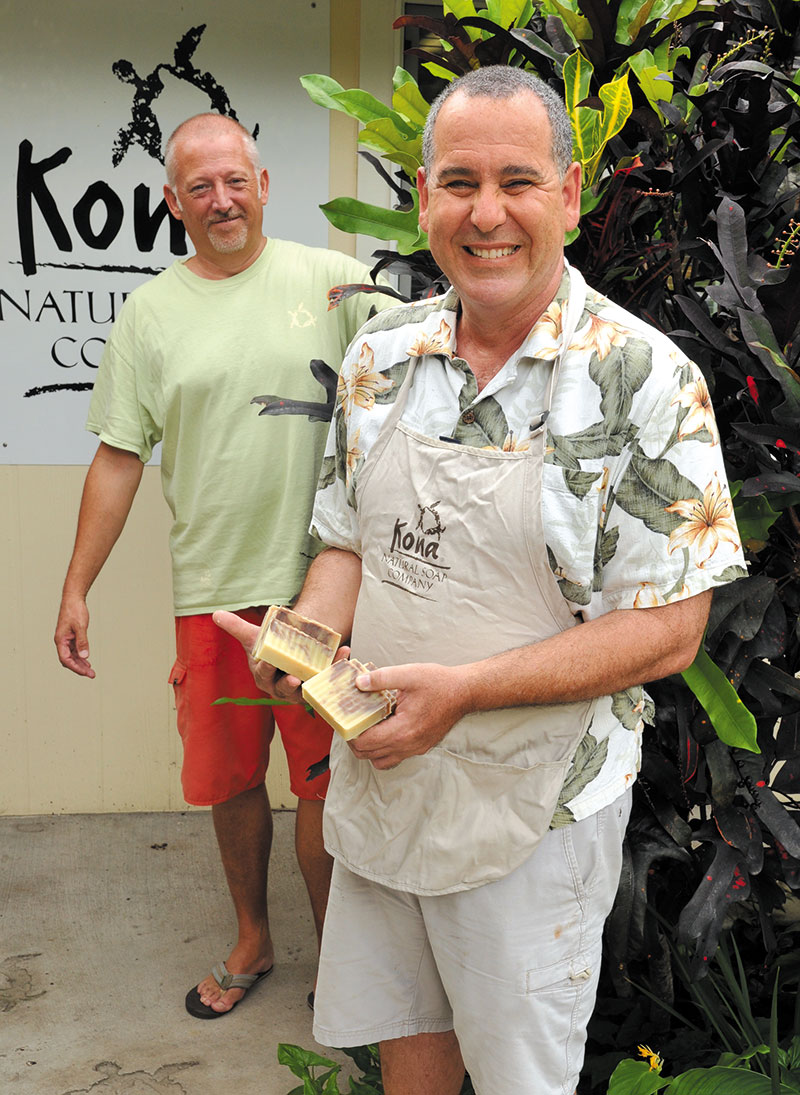
Fritz Hoddick loads cacao pods from Kokoleka Lani Farms to transport back to his sister Virginia “Gini” Choobua’s Likao Kula Farm for fermentation.
PHOTO COURTESY GREG COLDEN
Marty Corrigan (left) and Greg Colden, the minds behind Kokoleka Lani Farms, Likao Kula Farm and Pā‘ani Farm, are putting Hawai‘ i’s emerging cacao industry on the map.
Salon du Chocolat’s prestigious International Cocoa Awards in Paris is considered the “Cocoa Olympics” for industry professionals worldwide, but for Greg Colden and Marty Corrigan of Hōlualoa, this year’s event was more like the Academy Awards.
“The best chocolatiers, chefs, artisans and cacao growers in the world were there; more than 500 attendees total,” says Colden, who co-owns Kokoleka Lani Farms with Corrigan. “Just to be in the presence of these famed chocolatiers was amazing. To actually win the Cocoa of Excellence award for best chocolate in our division was absolutely incredible.”
Held back on Oct. 30 in Porte de Versailles, this year’s event honored 20 International Cocoa Award winners selected out of 223 submissions from 55 countries, which were then narrowed down to 50 finalists from the world’s four growing regions. Representing a three-farm grouping from Kona, Colden and Corrigan received the “best chocolate” award in the Asia, Pacific & Australia region on behalf of their collective, which also includes Likao Kula Farm in Hōlualoa and Pā‘ani Farm in Captain Cook.
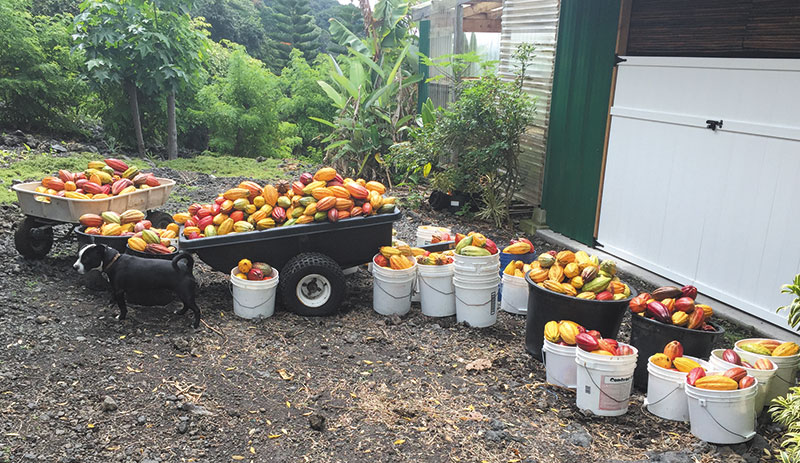
PHOTO COURTESY GREG COLDEN
According to Colden, the award represented an even bigger win for the emerging cacao industry in Hawai‘i. Introduced to the Hawaiian Islands in the 1980s, cacao can only grow 20 degrees above or below the equator.
Hawai‘i, which is located 19 degrees above the equator, is the only state in the U.S. where cacao will grow. It’s a relatively young industry compared to places around the world with farms that have been in existence for generations.
“Winning the award was the pinnacle of everything our three farms have accomplished together,” adds Cold-en. “But more importantly, it validates Hawai‘i’s importance in the world market and demonstrates that we are a force to be reckoned with. This award really puts Hawaiian cacao on the map.”
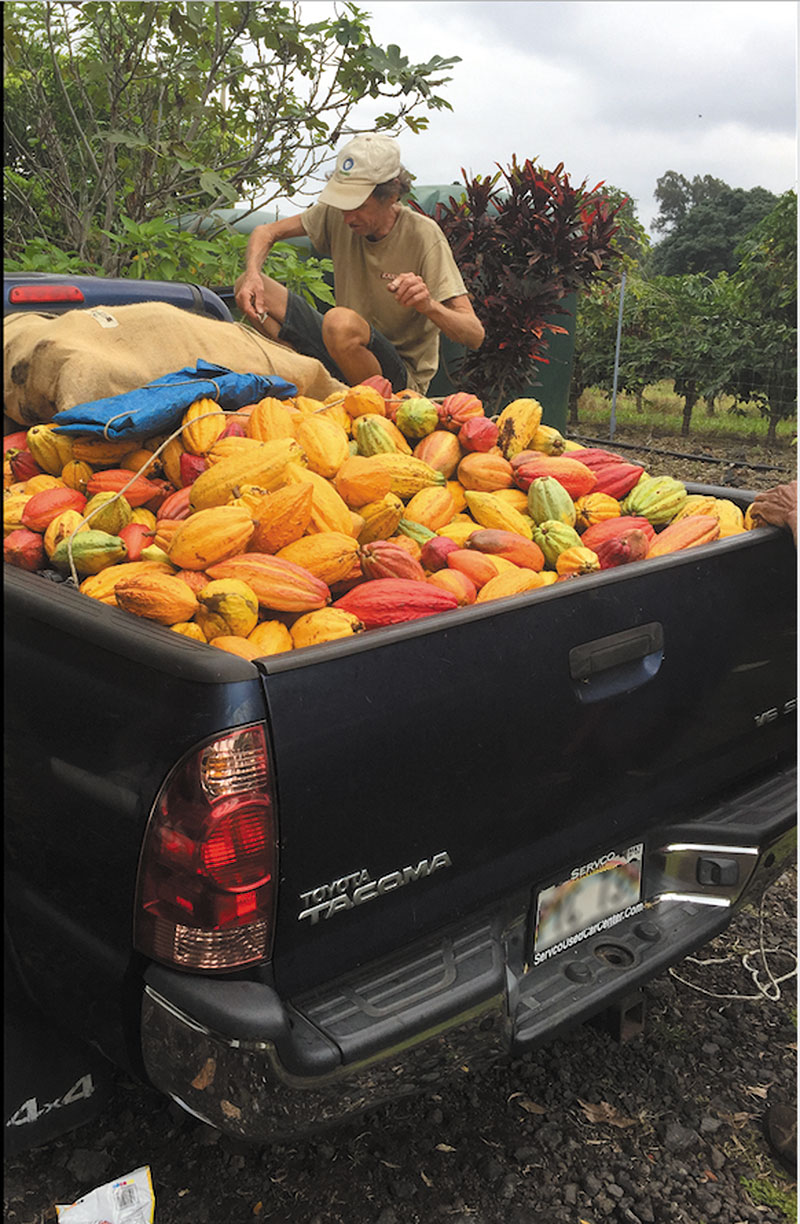
PHOTO COURTESY GREG COLDEN
According to event organizers, the evaluation process for selecting the winners was highly technical and scientific.
To be eligible for consideration, Colden and other entrants shipped 10 kilograms of fermented and dried beans to France. Judges from around the world then analyzed and tested submissions for DNA structure and an array of other qualitative aspects of cocoa. The final tests involved a blind sensory analysis of liquor carefully processed from the beans by a panel of international cocoa and chocolate experts. The best 50 samples were then processed into actual chocolate for further evaluation.
Colden attributes their win to a unique fermentation technique developed by master chocolatier Virginia “Gini” Choobua of Likao Kula Farm in Hōlualoa.
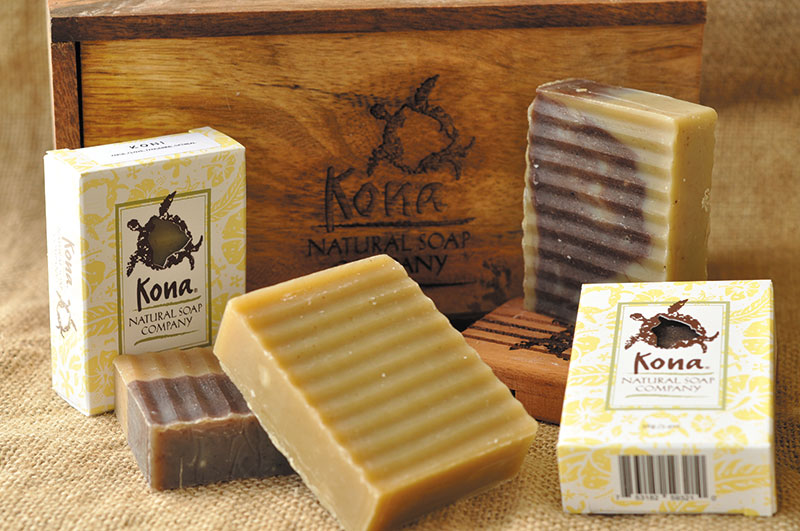
Expect cacao from Kokoleka Lani Farms in local products like chocolate soap
and private-label dark chocolate.
“Our beans are unique, but Gini’s one-of-a-kind fermentation process using wine yeast is what sets our beans apart,” he explains. “The traditional way is to put the beans in a box and cover them with burlap sacks to hold the heat. Gini wanted to take it to a different level.”
To that end, Choobua built a glass greenhouse at her drying facility, and her brother Fritz Hoddick, a cabinetmaker, took old wine casks from Sonoma and made lids for them on a spindle.
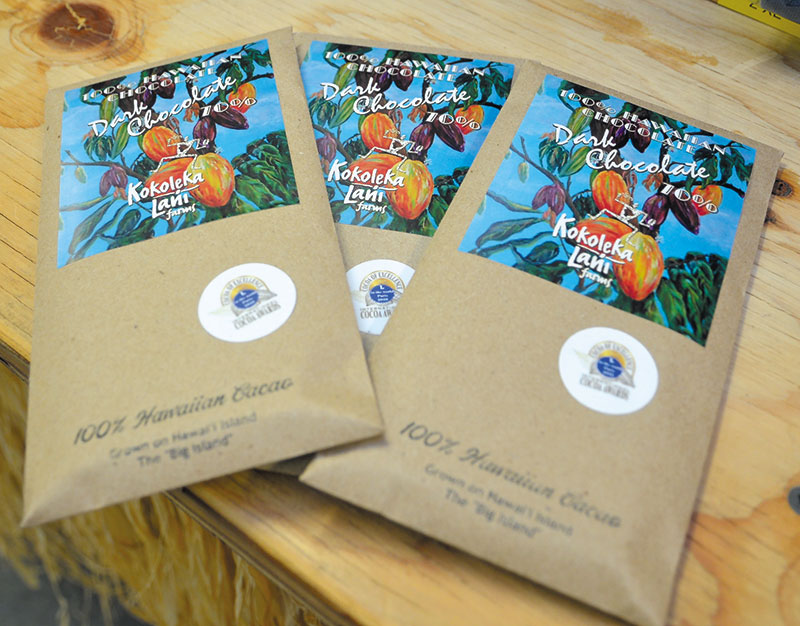
“The beans are well-mixed every 12 hours for 14 days,” Colden continues. “(Gini) takes the temperature with a probe, and adds wine yeast if necessary to increase the fermentation temperature. She also uses (an) electric blanket to heat the casks. This is the traditional way that you ferment wine, and there’s a whole science to it. It’s never been done before for cacao. Because of the wine yeast, you can detect the cherry notes in the finished product.”
Choobua started her farm in 2003 around the same time that Colden and Corrigan purchased theirs. In 2005, Colden personally planted a bulk of their 1,500 trees, along with 600 coffee trees, on their 5-acre property, which used to be an old rock quarry. Their interest in cacao began when they joined Hawai‘i Tropical Fruit Growers.
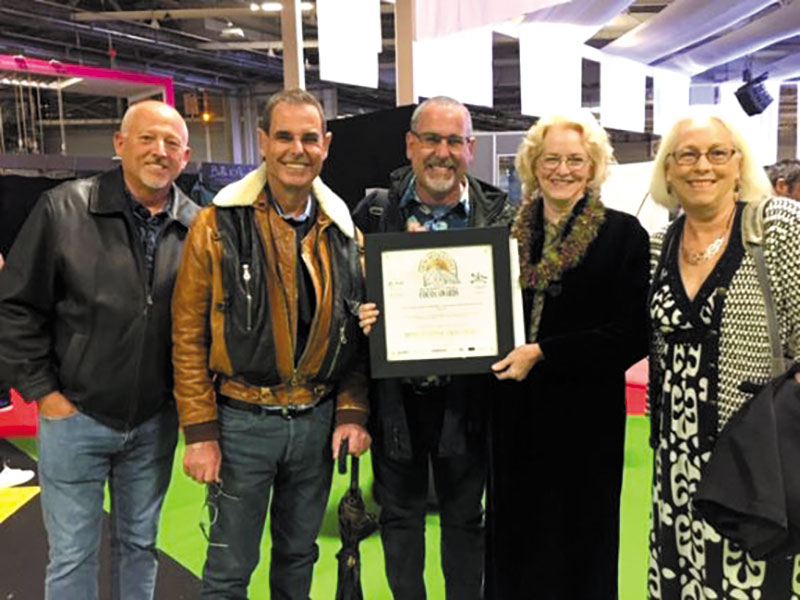
Marty Corrigan and Greg Colden pose with supporters in Paris. PHOTO COURTESY SALON DU CHOCOLAT
According to Colden, the high season for harvesting cacao pods is May and October. Last month, they harvested almost 3,500 pods. As with Kona coffee, the rich volcanic soil, abundant rainfall, and idyllic tropical climate yield exceptional cacao crops. The farm’s coffee and cocoa beans are also incorporated into handcrafted natural soaps that they produce at the farm.
In fact, Kokoleka Lani Farms is best known as the site of Kona Natural Soap Co., which produces all-natural soap infused with kukui nut oil and ingredients grown on the farm, including cacao and 100-percent Kona estate coffee. Their chocolate soap is a big seller at Ali‘i Gardens Marketplace and at their showroom on the farm. Their soap factory and farm is open to the public for tours every Thursday at konanaturalsoap.com.
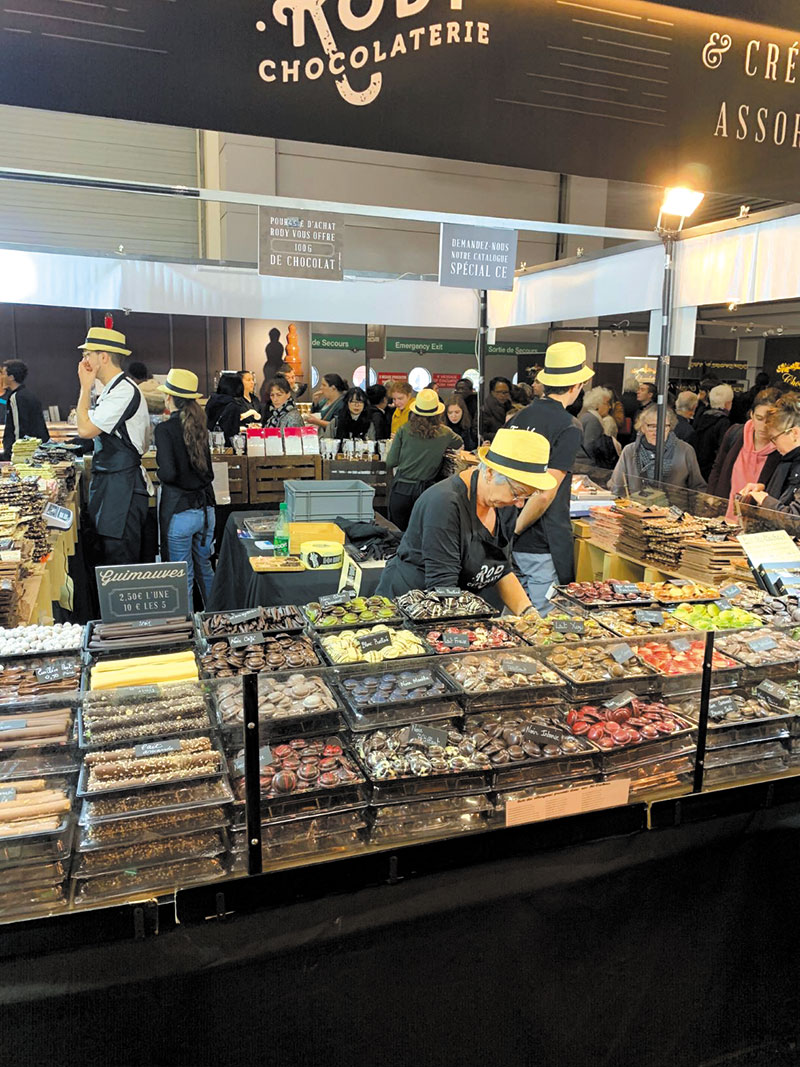
Corrigan and Colden’s award-winning chocolate in Paris, where they visited
Salon du Chocolat. PHOTOS COURTESY GREG COLDEN
Not to be outdone, Kokoleka Lani Farms also produces its own private label 100-percent Hawaiian dark chocolate bars made by Puna Chocolate Co. in Kailua-Kona. It’s also available at the farm and via mail order.
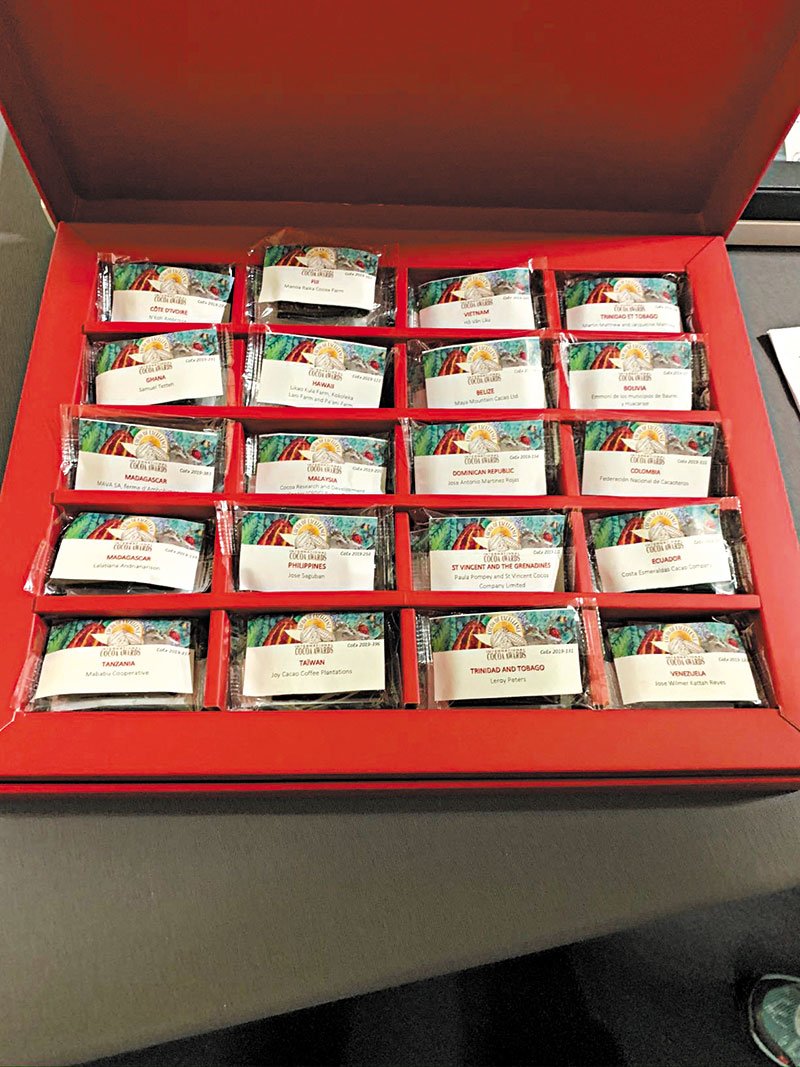
“Puna Chocolate Co. specializes in small-batch production using 50-percent milk chocolate that yields incredibly smooth, artisan chocolate,” concludes Colden. “We chose to partner with them because they are true artisans. Our entire chocolate venture is an integration of artisans helping other artisans in Hawai‘i. For us, it’s all about supporting one another, and at the end of the day, that’s what’s most important to Marty and me.”
